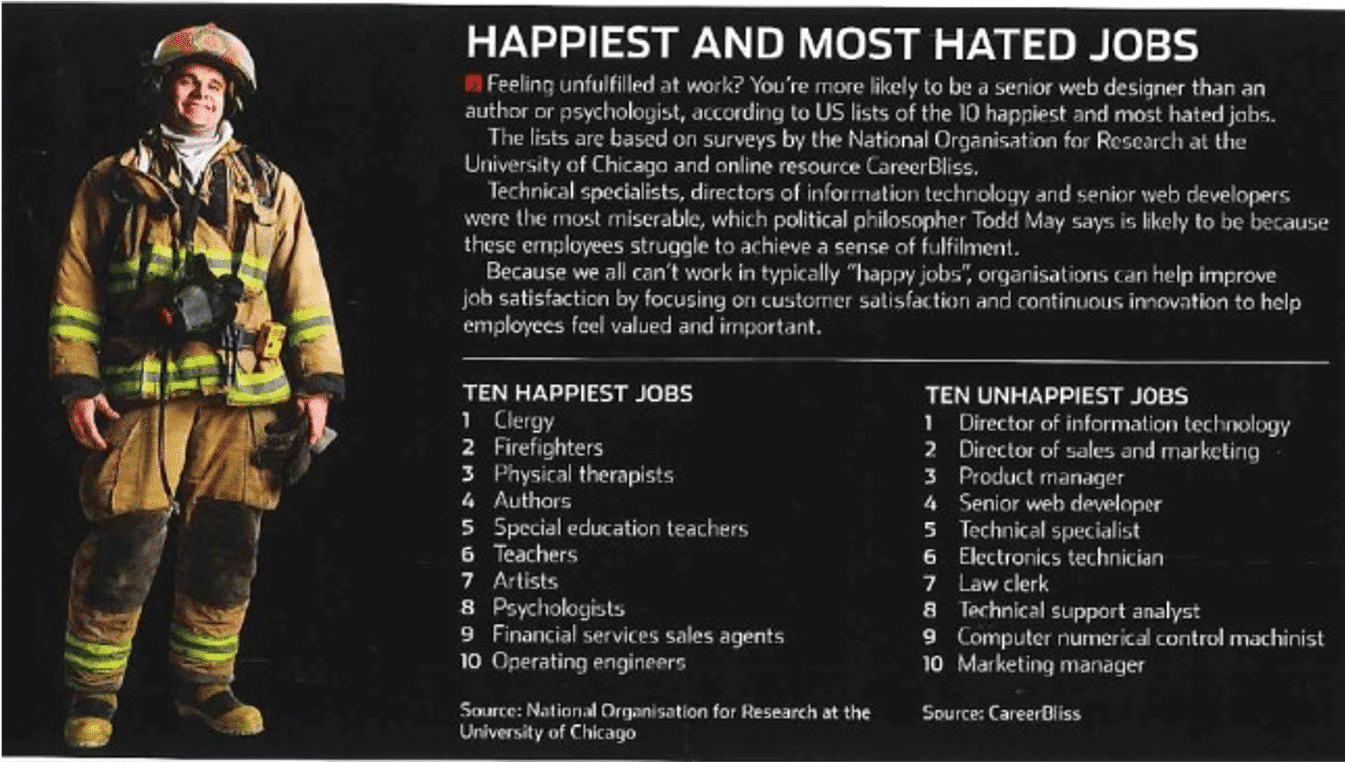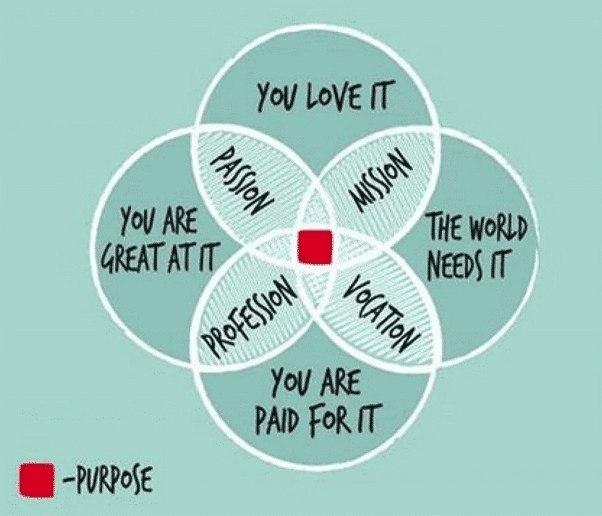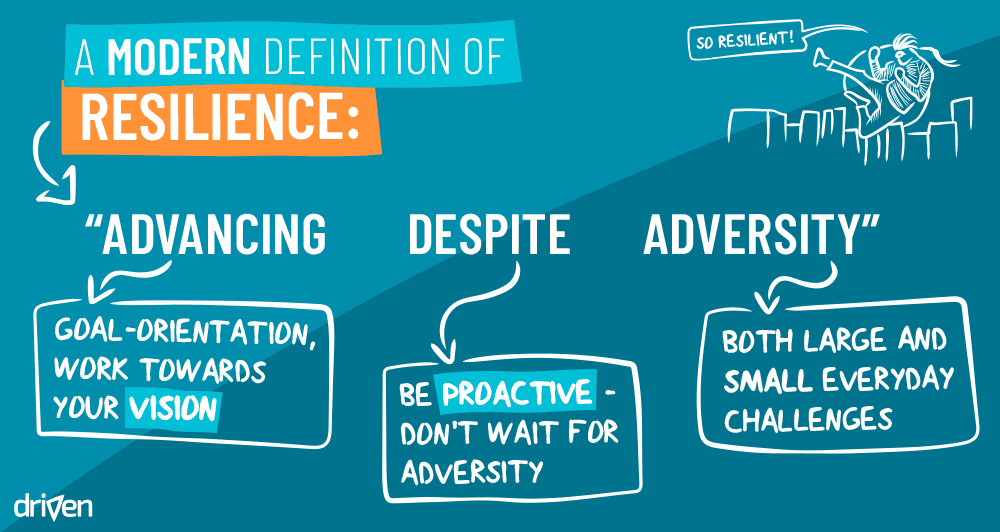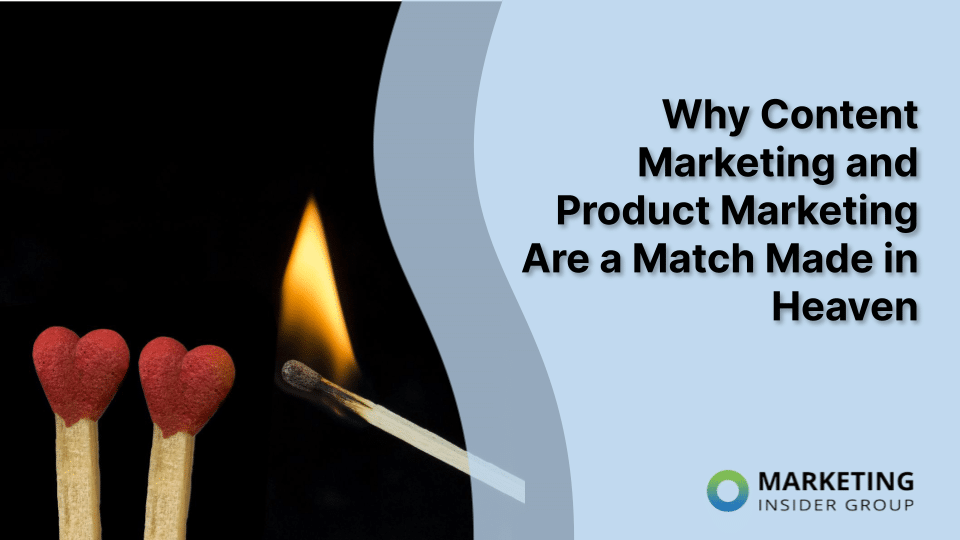
Why Directors of Marketing Are Miserable
How many people do you know who truly love their jobs and are happy at work? How many times have you complained about your boss, a coworker, or a difficult customer?
Well if you are a director of marketing or a marketing manager, you are not alone. One survey found that Directors of Marketing is one of the unhappiest jobs you can have.
I spoke to a former marketing colleague of mine just the other day who left her job because her manager (the CMO!) wanted to approve landing pages, email copy and basically tell her what to do all day long. Nobody likes a micro manager.
So if you are a miserable director of marketing, what are you supposed to do? Well, as the old saying goes: Wherever you go, there you are. My advice is to focus as much as possible on making an impact for your customers and your business
It’s all just a case of reframing your situation and focusing on helping others (customers, colleagues, or even your boss!)
Quick Takeaways:
- Being happy at work isn’t about the every day you do, but about your own state of mind and how you approach your work.
- Everyone can become more fulfilled at work, even Directors of Marketing, by shifting to a more positive and customer-focused mindset.
- Being empathetic and finding purpose in your work will make you and everyone around you happier.
What is a Marketing Director
Before we get into how directors of marketing can be more happy, first let’s define what a marketing director is.
Marketing Directors are responsible for driving growth at their companies by acquiring new customers through various marketing strategies and programs.
My definition using actual marketing goals or outcomes might seem a little different than those you could look up on other sites. because most people focus on what they do, not on the outcome they provide. I used to get so frustrated when this one old manager of mine would ask me what I was working on. I always wanted to reply sarcastically that I was working to make him look good.
What Does a Director of Marketing Actually Do?
Ok fine. If you must know, marketing directors spend their days in meetings, on conference calls and doing emails. Just like the rest of us.
But what they work on is generally defining and implementing a marketing strategy (if they are lucky) to achieve the goals of acquiring new customers.
But again, if you ask most marketing directors what they do, they will say they are creating brand campaigns, building personas, blasting out promotional emails, or meeting with advertising agencies.
So you could say that if you want to be happy in your job as a marketer, focus on the goals and outcomes, even better, focus on the outcomes for your customers. If you want to be miserable, focus on the tasks.
Now that we have a baseline of what a marketing director is and does and how we can be happier, let’s dive in to the art and science of happiness…
Understanding the Science of Happiness
One of the things I keep finding is this link between Marketing and HR. Grumpy marketers work with grumpy colleagues in other functions, and they tell their friends, who tell their friends, and on and on it goes.
Why are so many marketers (and employees in general) unhappy? When I was researching my book, Mean People Suck, I came across this article about Dr. Emiliana Simon-Thomas, a “happiness researcher” based out of UC Berkeley.
Simon-Thomas believes that everyone can maximize their potential for happiness at work by practicing four simple habits:
- Savor the good times.
- Find the purpose in your work.
- Improve your resilience.
- Practice kindness.
Are Marketing Directors Really Miserable?
Yup! A survey run by the National Opinion Research Center based at the University of Chicago compiled a list of the top 12 jobs in which workers are most likely to report themselves as satisfied:
- Clergy
- Physical therapists
- Firefighters
- Education administrators
- Painter, sculptors, related
- Teachers
- Authors
- Psychologists
- Special education teachers
- Operating engineers
- Office supervisors
- Security and financial services salespersons
And the unhappiest roles?
- Director of IT
- Director of Marketing and Sales
- Product Manager
- Senior Web Developer
- Technical Specialist
This is basically a list of the people I talk to every day!

Looking at this list, there’s a strong correlation between the four “happiness habits” and the types of careers in which people feel satisfied. Members of the clergy, teachers, and psychologists must practice kindness as a key part of their roles. Authors, teachers, and physical therapists are sure to find purpose in their work. And resilience is certainly an important requirement to be a firefighter or even an office supervisor.
But the point is, what you do for work doesn’t matter. The idea is that whatever type of work to do and wherever you work, you can find happiness.
Finding the Good Times
The difference between optimists and pessimists is not their life experience. I’m sure you can think of people who persist with a “glass half empty” approach to life, despite having a loving family, regular income, and a comfortable home.
On the flip side, some people manage to stay positive despite what life throws at them.
The difference is that optimists see the good in every situation. If you look back at your career history, I’m sure you can remember some good aspects of a job you didn’t really enjoy. In many cases, we can enjoy spending time with the people we work with, even if other aspects of the job are less desirable.
By shifting your focus to appreciate the positives, it makes you see your whole situation in a better light, and your happiness levels naturally increase.
Finding Purpose in Your Work
Not everyone is driven by a clear purpose in their careers. If you’re a therapist helping severely disabled children to live a better quality of life or you’re a debt counselor saving people from bankruptcy, it’s easy to find purpose in your life. But what if you just work in an office making money for a giant corporation?
We all want to feel like the work we do is having some kind of impact on the world. This isn’t always obvious in the day-to-day grind of admin and office politics. But remember, whatever your job is, the work you do is important enough that someone is paying you to do it.
Maybe your purpose is delivering great customer experiences. Or maybe it’s sharing your knowledge with your coworkers to help them be better at their jobs.

Everyone can find purpose in their work. If you can’t, then it might be time to reassess if your career is making the most of your talents and experience.
Improve Your Resilience

Everyone has to put up with difficult situations at work from time to time. Whether this means working under a mean boss or dealing with tricky customers, building your mental resilience can make a big difference to how you feel at the end of the working day.
A big part of this is not taking things personally. Remember, your boss isn’t angry with you – she’s
just trying to please her boss, and there may be other things going on in her life that you don’t know about.
Employing empathy can be of great help here. Everyone has bad days (or weeks, or years!), and sometimes we take it out on others. As long as you’re secure in the knowledge that you’re doing a good job, the reactions of others can’t hurt you.
Be Kind
Above all, be kind! I think everyone would agree that the world would benefit from a little more kindness. Empathy is more than just being kind, but it’s a good start.
Kindness is a two-way process. If you’re kind to people, you’ll find they’re more open to what you have to say and more likely to do what you want. Treating others as you’d like to be treated yourself can go a long way.
So what do you think? Please consider picking up your copy of Mean People Suck today, and get the bonus visual companion guide as well. Or check out our services to help evolve your company culture with the power of empathy!






